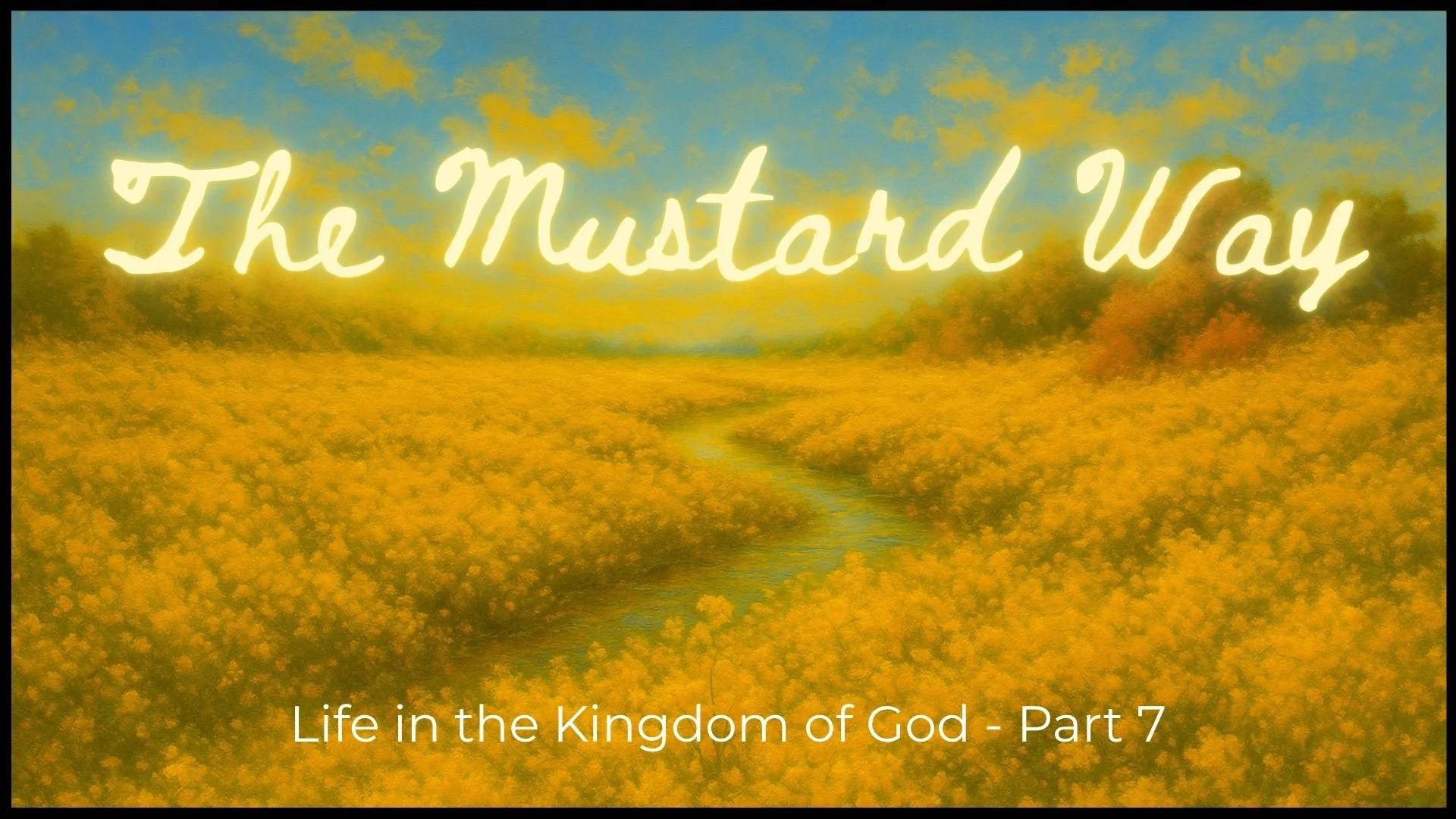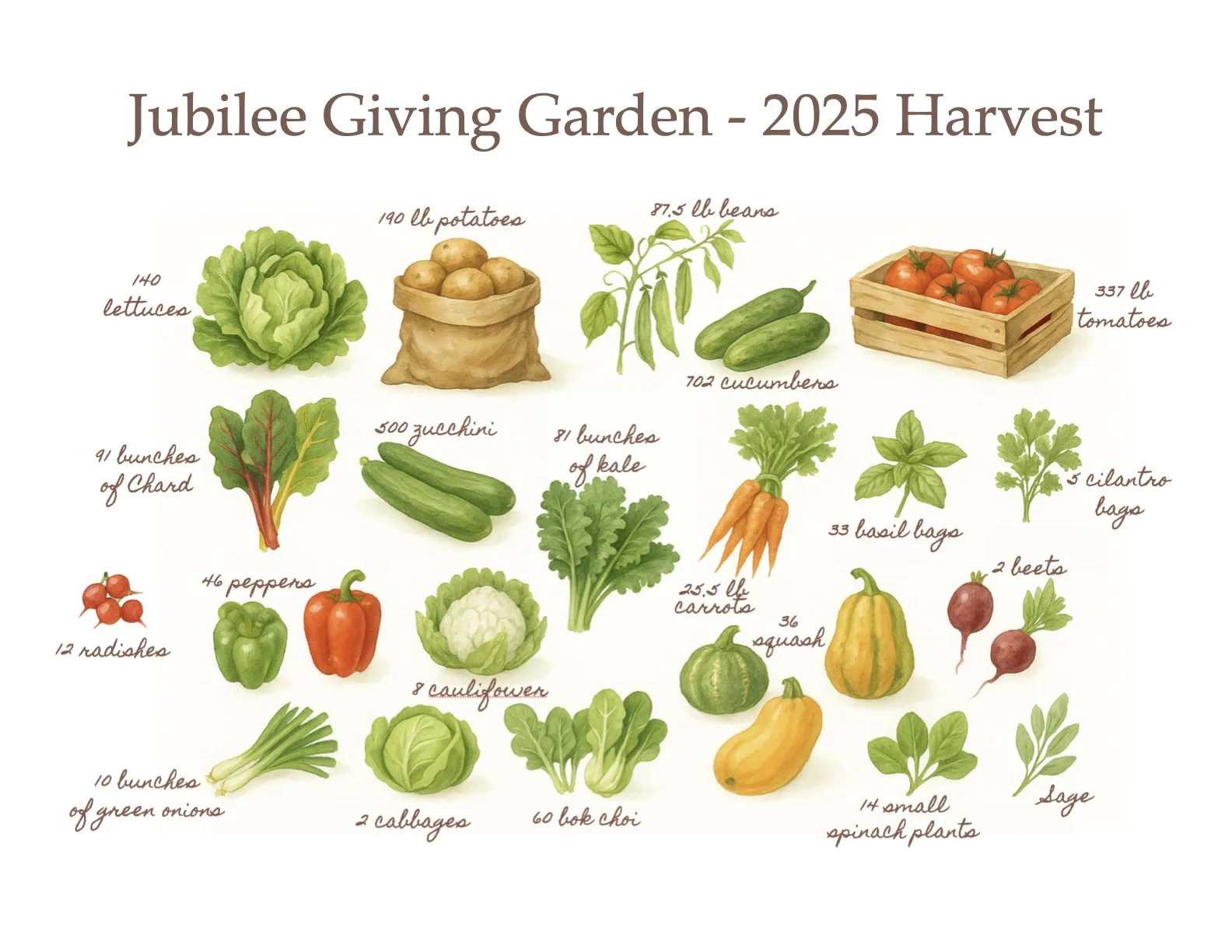The Mustard Way
Passages (NIV): Daniel 4:10–17, Ezekiel 17:22–24, Matthew 13:31–33
Preacher: Mark Kingston
Across our nation, it feels like the church is shrinking. Places that once buzzed with life seem quieter now. Congregations are older, the energy lower, and the question hangs in the air: what happened?
So - we rush to diagnose it: “Be more relevant!” or “Push back harder - Make the church great again!” or “Hold tightly to what we still have - don’t lose it!” But underneath all that sits a dangerous assumption: that the future of God’s kingdom depends on us. That if we just get the formula right, we can build it.
But that’s never been how God works.
Remember King Nebuchadnezzar In Daniel ch 4. He thought he’d made it with His empire so vast, so powerful, it felt like it touched heaven. From a distance it glittered, but up close it was built on pride, greed, and fear. The little people were crushed so the big people could shine. So God said, “Cut it down!” because greatness without goodness always collapses.
That’s a warning, even for us. Churches can fall into the same trap of chasing success, mistaking size for faithfulness, and forgetting that the Kingdom of God isn’t our “project” - it’s God’s gift and it is planted, sustained, and grown by Him.
The Old Testament Prophet Ezekiel, also writing during Nebuchnezzar’s reign, gives us a very different picture to Nebuchadnezzar’s dream. God takes a tender shoot from the top of a cedar (ie. something small and fragile) and plants it Himself on a mountain. Over time it becomes a tree, spreading branches and giving shelter. And God says, “I bring down the tall tree and make the small one grow.”
It’s His way of saying: I’m the one who plants, the one who makes things flourish. It’s a reminder that the kingdom isn’t ours to build…it’s His to give.
Then Jesus picks up the same idea and develops it a step further. He says the kingdom of God is like a mustard seed. Something tiny. Hidden. Easy to overlook. But inside is explosive life. It starts small but spreads quietly and stubbornly, until the whole field is covered.
So what? Well, I think we need to cultivate our own “Mustard Seed Imagination”. Here’s what I mean in 3 steps:
Remember that it all starts when God nudges us to “plant” a tiny seed. So - notice his nudges to do something small but life giving to others. Perhaps He’ll nudge you to pray for someone, or reach out and forgive someone, or invite someone over for a meal. Don’t overthink it or judge it worthless because of it’s size. Remember: every seeds start tiny, but it doesn’t stay that way.
Remember that seeds have to “die” before something new can live. Seeds must die first by being placed into soil before they start to grow into something new. Sometimes planting a seed means dying to something you hold dear - like being seen as successful, or being in control, or knowing how things will turn out. It might also mean giving up comfort, or reputation, or the plan you thought God was supposed to bless. But remember - hidden in soil is where life begins. Resurrection can only happen if something is “buried” first.
Remember that only God makes it grow. It’s not up to us to make anything grow. We can plant, we can water, we can tend the soil, but we can’t reach in and force a seed to sprout. Growth is God’s work. It always has been, always will be, and He will do it in His time and in His way. Sometimes fast, sometimes painfully slow. Sometimes where you expect it, sometimes in the places you’d written off as barren. Our part is to stay faithful - to keep tending, trusting, and watching.
That might mean offering forgiveness but finding it’s not welcomed. Or praying for someone again, even when nothing seems to change. Or showing kindness when it feels like no one notices. Or staying when walking away would be easier. That’s what it means to tend the seed: to keep trusting that what’s buried isn’t wasted, that life is already happening underground, even when you can’t see it yet.
That’s exactly how the Jubilee Giving Garden began.
It started with a nudge: actually, three! Three different people, in the same week, mentioned the same idea: “What if we turned this bit of barren land into a vegetable garden and gave what we grew away to those who need it most?” That’s usually a sign God’s up to something. So we noticed. We planned. We planted. And waited… and soon enough, that forgotten patch of earth was overflowing with food…
None of us imagined or expected that kind of abundance! We planted, we watered and weeded, but God made it grow. He turned tiny seeds and seedlings into an abundant harvest.
So just imagine: what might happen if we each noticed God’s nudges to plant Kingdom “seeds” in the days and weeks ahead? What might happen in our town if we planted the seeds He gives us, tended them with love and prayer, and left the outcome to Him? The harvest when it comes, might surprise us…
REFLECTION QUESTIONS
Losing the centre
What do you do when it feels like the church isn’t in the centre anymore, and nobody’s listening like they used to? Do you fight harder to be noticed? Do you try to make it cool again? Or… could it be that this quieter, smaller place is exactly where God likes to start something new?Small Beginnings
What if the things that look too small to matter - the quiet prayer, the visit, the shared meal - are the very seeds God will use to change everything? Are you noticing those moments that seem too ordinary to be divine?Buried Things
Sometimes planting a seed means something in you has to die first - like pride or control or a guarantee of success. What’s the thing you might need to let fall into the soil so something new can live?Slow Growth
Only God can make things grow. So, what do you do when you’ve faithfully prayed, and planted, and waited, but nothing seems to grow or to change? How could you keep trusting that God’s still growing something underground, even when every part of you wants to give up on it?The Harvest
If you could see the harvest God is growing from the seeds you’ve planted, what might it look like?
Take a moment to imagine it, then let that longing become your prayer.


